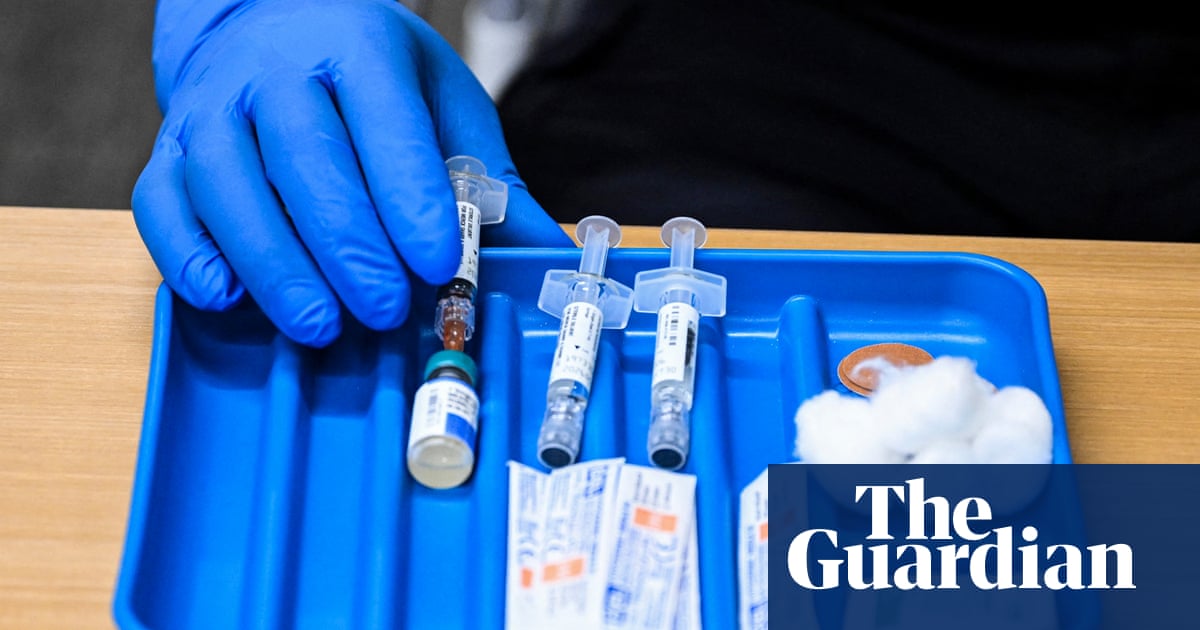South Koreahas recorded the highest number of measles cases in six years, adding to concerns thatlow vaccination ratescombined with international travel are contributing tofurther outbreakselsewhere in the region.
The country has confirmed 52 cases so far this year, exceeding the 49 recorded for the whole of 2024, the Korean Disease Control and Prevention Agency (KDCA) said this week. It is the highest figure since 2019, when 194 cases were recorded.
TheWorld Health Organization(WHO) recognised South Korea as “measles free” in 2014, but overseas travel and an ageing population are thought to have contributed to the rise in cases.
South Korea is not alone in having outbreaks of measles, which experts consider the most infectious communicable disease. Alarm is growing over outbreaks in the US – centred onTexas– and in Thailand and Vietnam. The US is enduring the largest measles outbreak in aquarter of a century, with one leading immunologist warning: “We’re living in a post-herd immunity world.”
The Vietnamese health ministry said officials had identified about40,000 suspected measles casesand five deaths already this year, prompting calls to speed upvaccinationof children. Vietnam confirmed 6,725 cases and 13 deaths in 2024 – with most deaths occurring among children and older people with underlying health conditions, according to media reports.
According to figures reported to the WHO by member states, Thailand had 7,507 cases in 2024, compared with just 38 in 2023.
The outbreak inSouth Koreahas been attributed to unvaccinated travellers from overseas. Of the 52 cases reported by the KDCA this week, 34 involved people from overseas – mostly from Vietnam – the Yonhap news agency said.
“The global increase in measles is likely to result in more imported cases,” a KDCA official told Yonhap. “The risk of rapid outbreaks remains low because of our stable vaccination rates and monitoring system.”
A two-dose measles vaccination in childhood is about 99% effective in stopping someone from getting measles, according to infectious diseases experts.
The WHO said in apress releasein March: “The latest data indicates that the measles outbreak in Vietnam is still very much ongoing, and we are seeing continued surges in cases in central and northern Vietnam – including new outbreaks in parts of the country that have not reported cases or clusters of cases before.
It added: “Due to the highly contagious nature of measles and the significant immunity gaps, many un- or under-vaccinated children are exposed to infection.”
The outbreaks in the US and south-east Asia have sparked concern that Australia too could become “fertile ground” for the disease.
Measles can cause severe complications in vulnerable children and adults including pneumonia, encephalitis and death, according to a factsheet on thewebsiteof the US Centers for Disease Control and Prevention.
